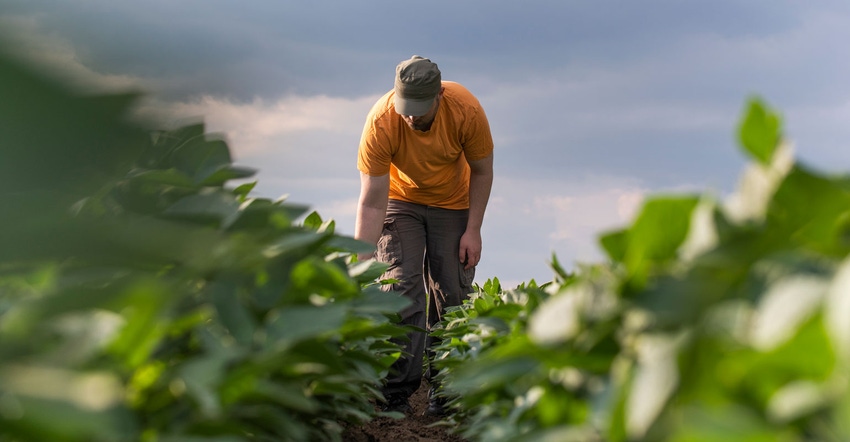
“We run, hands down, the best crop business in the world, which is all clouded by the fact that we have the litigation overhang,” Werner Baumann, CEO of Bayer AG, told a group of investors this morning.
He was talking about the thousands of legal actions against the company from people claiming Roundup, which contains glyphosate, causes cancer. Baumann outlined how Bayer would mitigate the legal actions surrounding its glyphosate litigation and provide a path forward for investors, while safeguarding the product for farmers and ranchers.
In May, Bayer decided to discontinue the national claims process regarding the Roundup lawsuits. The company then presented a five-point plan of legal and commercial actions that would allow it to gain more control of the process moving forward. “And actually, to provide a path toward closure of the glyphosate litigation,” Baumann added.
Today’s conference call updated investors on this plan and outlined two scenarios that could play out in the foreseeable future.
Two paths forward
The first scenario is based on the U.S. Supreme Court accepting or rejecting Bayer’s request to hear the Hardeman case, in which a California man claims to have developed cancer from exposure to Roundup.
That is scheduled to be by the end of August, Baumann said. If they Supreme Court accepts the petition for review, it could rule either in favor or against Bayer. If the court rules in the company’s favor, that would “effectively end potential future litigation,” Baumann explained.
The second scenario assumes that the Supreme Court either declines to hear the Hardeman case or issues a ruling in favor of the plaintiff. “This outcome would lead to further claims and exposure for the company and, ultimately, also to further payments in years to come,” Baumann said. He added if the court rules in favor of the plaintiff, the company would activate its own claims administration program.
Baumann tried to reassure investors that the “company sees good chances for scenario one, given the substantial legal questions at issue in the glyphosate litigation,” and believes there are strong arguments for the U.S. Supreme Court to accept the case and ultimately render a supporting verdict.
However, he noted, Bayer is also prepared for the second scenario to manage anticipated claims, through settlement and litigation, to ultimately bring an end to this litigation.
For this scenario, the company posted an additional provision of a gross amount of $4.5 billion before tax and discounting in the second quarter of 2021, reflecting the company’s potential long-term exposure. That comes on top of the $9.6 billion in earlier litigation set-asides.
“We want to provide comfort to our investors that the glyphosate litigation exposure should now be reasonably accounted for and leaves significant upside in the event of a favorable Supreme Court decision on the case,” Baumann said.
“It is important for the company, our owners and our customers that we move on and put the uncertainty and ambiguity related to the glyphosate litigation behind us. This clarity should also allow informed investors to direct their focus on operational performance, the quality of Bayer’s businesses and its intrinsic value.”
Impact to agriculture
While Bayer is replacing all U.S. lawn and garden glyphosate-based products, it is not taking Roundup out of the hands of professional and agricultural users.
“Let me be very clear that this is exclusively geared at managing litigation risk, and not because of any safety concerns,” Baumann said. “We know that farmers continue to rely on Roundup containing glyphosate to deliver crops to market using sustainable farming practices that reduce soil tillage, thereby reducing soil erosion and carbon emissions.”
Liam Condon, Bayer AG Crops Science Division president, said the company is looking at new formulations of proven chemistry to replace glyphosate in the residential market starting in 2023, but not the agriculture sector. He explained how the volume of product sold into the residential market is small when compared to the other two markets. However, “over 90% of all claims have come from the lawn and garden sector,” Condon said.
And while EPA went on record stating that glyphosate is not carcinogenic, the company plans to discuss updated labeling options for glyphosate-based formulations moving forward. Baumann said these will provide more information to users about the science behind their products and allow them to make “even more informed purchasing and application decisions.”
“The biggest issue that kind of hangs over the stock, that prevents people from coming into the stock, because nobody wants to go to his investment committee and argue the case with an unknown or unclear litigation overhang is a big issue that we need to put to bed,” Baumann said. “And that is exactly what we are doing today. We have to move on.”
About the Author(s)
You May Also Like






